 11 citations,
January 2018 in “Acta dermato-venereologica”
11 citations,
January 2018 in “Acta dermato-venereologica” Researchers found specific genes in the part of hair follicles that could help treat hair disorders.
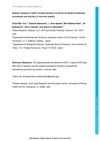 11 citations,
June 2017 in “Journal of cell science”
11 citations,
June 2017 in “Journal of cell science” AGD1's PH domain is essential for its role in root hair growth and polarity.
 11 citations,
January 2016 in “Journal of clinical & experimental dermatology research”
11 citations,
January 2016 in “Journal of clinical & experimental dermatology research” Substance abuse can cause various skin problems, including marks from injections, sores, premature aging, and increased cancer risk.
 11 citations,
May 2015 in “Stem Cells Translational Medicine”
11 citations,
May 2015 in “Stem Cells Translational Medicine” Megestrol acetate helps fat-derived stem cells grow, move, and turn into fat cells through a specific receptor.
 11 citations,
September 2007 in “Advances in therapy”
11 citations,
September 2007 in “Advances in therapy” INVERSION Femme supplement helped women lose weight, reduce hair loss, and improve skin and nail health.
 10 citations,
December 2021 in “Frontiers in cell and developmental biology”
10 citations,
December 2021 in “Frontiers in cell and developmental biology” Glypican-1 is important for blood vessel growth in hair follicles and could help treat hair loss.
 9 citations,
September 2018 in “Journal of Photochemistry and Photobiology B-biology”
9 citations,
September 2018 in “Journal of Photochemistry and Photobiology B-biology” A hair-growth formula with cystine and thiamin helps protect skin cells against UV damage and improves their growth.
 9 citations,
January 2015 in “Fundamental & clinical pharmacology”
9 citations,
January 2015 in “Fundamental & clinical pharmacology” Cyclosporine A helps hair grow by blocking a process that would otherwise cause hair cells to die.
 8 citations,
May 2021 in “Applied Materials Today”
8 citations,
May 2021 in “Applied Materials Today” New nano composite helps reduce scars and regrow hair during burn wound healing.
 8 citations,
December 2020 in “The FASEB Journal”
8 citations,
December 2020 in “The FASEB Journal” Blocking adenosine A2B receptor may prevent or treat hearing loss.
 8 citations,
November 2020 in “Nature Communications”
8 citations,
November 2020 in “Nature Communications” Adult stem cells with Tp63 can form hair and skin cells when placed in new skin, showing they have hidden abilities for skin repair.
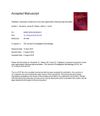 8 citations,
September 2016 in “Journal of Investigative Dermatology”
8 citations,
September 2016 in “Journal of Investigative Dermatology” Mice with more Flightless I protein grew back their claws better after amputation.
 8 citations,
February 2014 in “Stem cells translational medicine”
8 citations,
February 2014 in “Stem cells translational medicine” Modified stem cells that overexpress a specific protein can improve hair growth and reduce hair abnormalities in mice.
 7 citations,
April 2023 in “Frontiers in immunology”
7 citations,
April 2023 in “Frontiers in immunology” Oral baricitinib and ruxolitinib are effective and safe for treating alopecia areata.
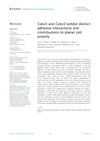 7 citations,
January 2023 in “Frontiers in cell and developmental biology”
7 citations,
January 2023 in “Frontiers in cell and developmental biology” Celsr1 is crucial for skin cell alignment, while Celsr2 has little effect on this process.
 7 citations,
March 2022 in “Scientific reports”
7 citations,
March 2022 in “Scientific reports” Removing anthrax toxin receptor 1 in pigs prevents Senecavirus A infection and causes a rare disease similar to GAPO syndrome.
 7 citations,
September 2017 in “Scientific Reports”
7 citations,
September 2017 in “Scientific Reports” Mice with too much sPLA₂-IIA have hair loss and poor wound healing due to abnormal hair growth and stem cell depletion.
 7 citations,
November 2014 in “Histochemistry and Cell Biology”
7 citations,
November 2014 in “Histochemistry and Cell Biology” The we/we wal/wal mice have defects in hair growth and skin layer formation, causing hair loss, useful for understanding alopecia.
 7 citations,
July 2008 in “Experimental Dermatology”
7 citations,
July 2008 in “Experimental Dermatology” The study concluded that a protein important for hair strength is regulated by certain molecular processes and is affected by growth phases.
 7 citations,
March 2007 in “International Journal of Dermatology”
7 citations,
March 2007 in “International Journal of Dermatology” Targeting FGFR-1 with antisense oligonucleotides may help treat baldness by increasing hair follicle activity.
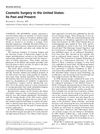 7 citations,
November 1999 in “Dermatologic Surgery”
7 citations,
November 1999 in “Dermatologic Surgery” The document concludes that multidisciplinary training is important for future cosmetic surgeons and acknowledges the lasting influence of pioneers in the field.
 6 citations,
July 2023 in “Nature cell biology”
6 citations,
July 2023 in “Nature cell biology” SOX9 helps determine stem cell roles by interacting with DNA and proteins that control gene activity.
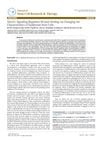 6 citations,
January 2016 in “Journal of Stem Cell Research & Therapy”
6 citations,
January 2016 in “Journal of Stem Cell Research & Therapy” Notch1 signaling is crucial for improving wound healing and skin regeneration by affecting stem cell behavior.
 5 citations,
March 2023 in “bioRxiv (Cold Spring Harbor Laboratory)”
5 citations,
March 2023 in “bioRxiv (Cold Spring Harbor Laboratory)” Dynamic, light touch is sensed through a common mechanism involving Piezo2 channels in sensory axons.
 5 citations,
January 2022 in “PloS one”
5 citations,
January 2022 in “PloS one” Deleting the p63 gene in certain cells causes problems in thymus development and severe hair loss in mice.
 5 citations,
August 2020 in “Stem Cell Research & Therapy”
5 citations,
August 2020 in “Stem Cell Research & Therapy” Using fat-derived stem cells with the drug meglumine antimoniate can help control skin disease and reduce parasites in mice with leishmaniasis.
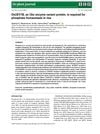 4 citations,
February 2021 in “Plant journal”
4 citations,
February 2021 in “Plant journal” OsUEV1B protein is essential for controlling phosphate levels in rice.
 4 citations,
December 2020 in “Journal of Dermatology”
4 citations,
December 2020 in “Journal of Dermatology” Impaired autophagy may cause hair loss by triggering early catagen.
 4 citations,
February 2020 in “Cell & tissue research/Cell and tissue research”
4 citations,
February 2020 in “Cell & tissue research/Cell and tissue research” Hair follicle stem cells might help treat traumatic brain injury.
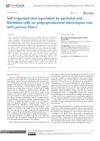 4 citations,
October 2017 in “Advances in tissue engineering & regenerative medicine”
4 citations,
October 2017 in “Advances in tissue engineering & regenerative medicine” Researchers created a potential skin substitute using a biodegradable mat that supports skin cell growth and layer formation.






























